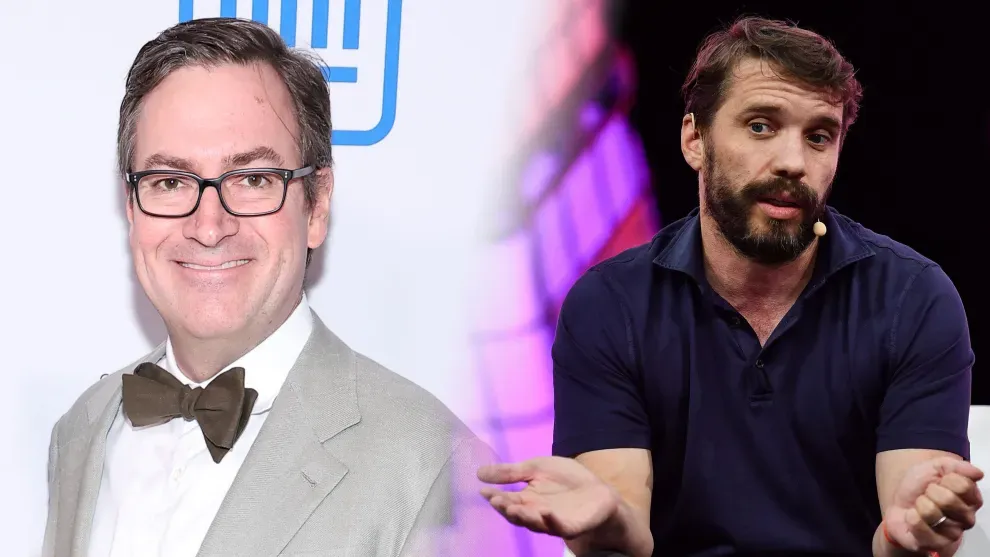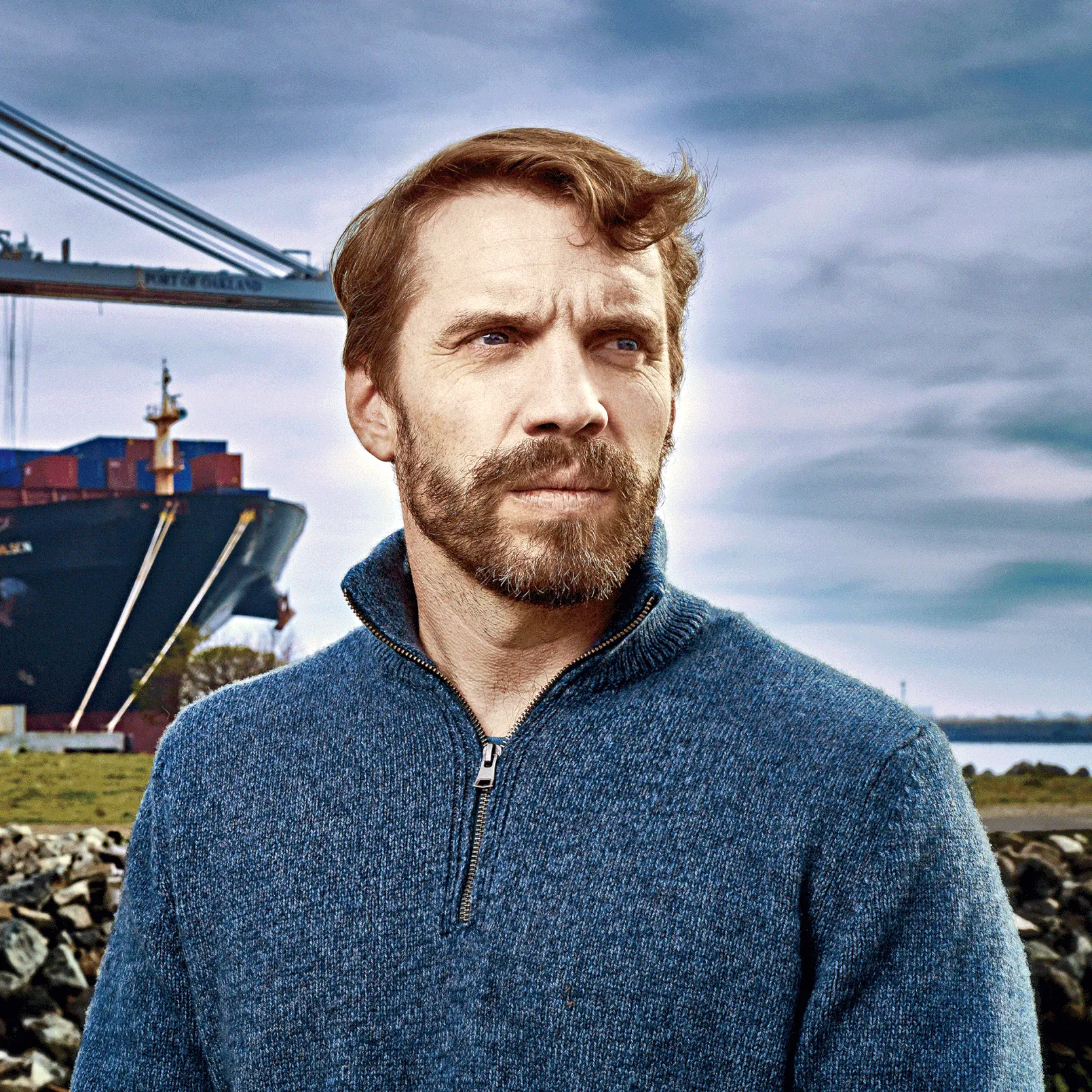Flexport Musical Chairs: Too Many Cooks or Planned Obsolescence?

When I decided to take a short break away from this wonderful yet slightly schizophrenic industry, I wasn't sure when I'd return. From June 2022 to June 2023, I hardly missed a day of creating content, sharing insights, and trying to get industry stakeholders to ask the right questions about logistics, LogTech, and other key topics such as sustainability, climate change, and private jets. After twelve months, I needed a break, not because I was bored, but because the industry was either overly negative or unjustifiably optimistic. Neither of these has had any type of positive impact on logistics or supply chains.
Obviously, I was hoping that two months of summer heat and a slower pace would be enough for global supply chain stakeholders to come to their senses. Wishful thinking I know, but I'm still going to play the youthful naivety card at the age of 31.
Last week, Flexport decided that the best way for them to become relevant again was by firing their ex-Amazonian CEO, throwing him and his team of ex-Amazonian recruits under the figurative bus, and reinstating Founder and over-zealous X/Twitter user Ryan Petersen as Supreme Leader. Since these events, we've seen everyone and their grandma voice their opinion and share their theories about the goings-on at Flexport. Even more "mainstream" outlets such as TechCrunch have decided to get in on the fun.
Most opinions that I've read on the topic so far have leaned to the negative, with some even falling into hyperbole territory. No, I do not believe that Dave Clark was an agent sent by Amazon to cause havoc and set Flexport back (I guess stranger things have happened). So just what did happen at Flexport?
Part One - The Man with the Plan
Flexport BC (Before Clark) - The Set-Up for Success
On June 8, 2022, Ryan Petersen posted on Flexport's blog and X/former Twitter that Dave Clark will be the new CEO of Flexport and a member of the board from September 1, 2022. He also clearly stated that they will be co-CEOs for six months, before handing over the reins around March 1, 2023. We'll get to why the fact that Dave was a co-CEO and on the board is an important detail a bit later.
When Dave was announced as a new "Flexporter", Ryan painted the company as a powerhouse of global logistics:
- "The best way for companies to place orders to their factories and get those goods delivered by air freight, ocean freight, truck or rail to more than 112 countries"
- "Providing a complete suite of tech-enabled global trade services"
- "Grew our revenue from 2mn USD in 2014 to 3.5bn USD in 2021"
- "Revenue forecast for 2022 close to 5bn USD"
- "2500x growth in 8 years"
- "Unlike most venture-backed companies, we're profitable"
Sounds amazing right? It's also important to note this post came a few months after Flexport raised a series E of 935mn USD, putting their valuation at over 8bn USD. Why is this important? Aside from the fact that their valuation today should be nowhere near that number, Flexport welcomed Bob Swan, a growth operating partner at Andreessen Horowitz, to the board of directors, with both Shopify and MSD Partner providing some board observers.
Surely with such a crack team of leaders and board members/observers, you cannot fail, right?

Flexport's Strategy aka - The Plan
I'm not sure how things work at Flexport, but when you hire a new CEO, and appoint them as a board member, that should mean a couple of things: they are aligned with the company strategy, and what they pitched to achieve said strategy makes sense.
If Dave's LinkedIn posts are anything to go by, heavily recruiting was part of that plan. Less than a month after starting his new role as co-CEO, Flexport announced they were hiring "about 400 engineers" to double the tech team by 2023. Then comes a steady flow of celebrating the arrival of a number of ex-Amazonians in high-value (and very expensive) roles. Important to mention that for a "tech company" the role of CTO remained strangely empty after James Chen's departure.
But was this part of the plan? To move away from LogTech and focus on being a 3PL?
That's what Dave's communication at TPM23 would have you believe. Dave described Flexport as a "global 3PL battling a fiercely competitive industry". I covered this back then and asked the simple question about their valuation: "We do not value tech companies and 3PLs in the same way, and surely this means Flexport's valuation has to change, right?".
Two months later, Dave was at it again with the big picture communications: "We're acquiring Shopify Logistics". This move announced another part of the plan: small business and e-commerce. Again leaning away from the tech play: first mile, fulfilment, international forwarding. This acquisition included adding the likes of Harish Abbott to Flexport's leadership, further inflating the team at the top.
As part of the acquisition announcement, Dave mentioned some key achievements achieved over the six-month period running up to the acquisition:
- Built a strong leadership bench with some of the best logisticians, technologists, and operators in the world
- Heavily invested in hiring hundreds of software engineers
- The acquisition makes them the primary provider of Shop Promise for Shopify merchants providing an integrated logistics experience through Shopify
To summarize? "We've spent bucketloads of cash on hiring ex-Amazonians who may be past their sell-by date to lead a 3PL that isn't really a 3PL."

Full marks for trying. But what were they trying to do exactly? Doubling the tech team sounds amazing, but with no CTO and all communications seemingly edging the company farther away from their initial position as a "tech-enabled forwarder"... If we weren't pretty confused before the acquisition of ex-Deliverr, we were after, and I'm assuming this is when everything started to unravel.
Part Two - Becoming Irrelevant in a World of 7-second Attention Spans
Do you know what the biggest announcement was on the Flexport blog after the M&A announcement?
"Ryan Petersen Joins Founders Fund".
To say that Flexport was slipping out of sight and out of mind is an understatement. As 3PLs the world over announced rather lackluster financial results, and the likes of CargoWise took a beating after their annual results announcement, Flexport didn't really get a mention.
Little did we know, in the background, that the honeymoon period had come to an end, and they had set a course for implosion and a messy public break-up.
What did Flexport Achieve from May to September 2023?
Four months. That is all it took for Dave Clark to go from Leader of one of the most over-funded and over-valued 3PLs in history (remember, they heavily implied they were not a tech company, yet were funded and valued as such), to resigning and announcing he may run for Governor of Texas in the same sentence. What a strange way to attempt to soften the blow.
What did Flexport, and by extension Dave, achieve in those four months? We'll probably never know. In fact, we still do not know if Flexport hit that 5bn USD revenue they'd predicted for 2022. What we do know is that Flexport has gone from being profitable and on track for a 5bn USD year, to being "far from profitable".
Flexport has $1B in net cash. But we're far from profitable right now and will be laser focused on profitable growth from now on.
— Ryan Petersen (@typesfast) September 8, 2023
This is very telling, read the Flexport News section and you find nothing. No logo announcements, no product releases, no idea of the direction they are taking for the rest of the year and beyond. Where is this roadmap that Dave was so proud of and excited about? It pains me to add fuel to the fire and continue writing this from the point of view that Dave is the one who has essentially hamstrung Flexport for the past 12 months, and potentially done irreparable damage to their valuation, and their future.
But was it really all Dave's doing, and in such a short time span?
Was Everyone at Flexport Asleep at the Wheel?
Nah we were on it just trusting in the growth plan which hasn't come through. It's all good I know how to grow this business. But gotta get costs in line first.
— Ryan Petersen (@typesfast) September 8, 2023
Ryan Petersen has been live tweeting (can we still say "tweeting" or is the verb "eXing" now?) Dave's resignation, much to the amazement (and delight) of us logistics enthusiasts. A bold strategy, and one that continues to paint Dave as the fall guy. The thing is, if Dave is under the bus, then Ryan Petersen, Bob Swan, and the "board observers" from Shopify and MSD Partners are definitely driving said bus in a bid to not find themselves lying next to Dave under the figurative wheels.
There is no version of this reality where the Board, and Ryan, didn't sign off on all of the aforementioned investments. From the 400 software devs, to the ex-Amazonian leadership team, and the acquisition of Deliverr, there is no way a charismatic founder such as Ryan Petersen lets another man raise his baby in a way he disagrees with.
The more I write this, the less sense it all makes. Bring in an expensive new CEO to implement a plan that will eventually see said CEO loses his job and the founder returns to "save the day". After the P44 and Slync episodes, Flexport clearly will have its Netflix episode and become another case study for future business students. Moving on…
The way this has happened will have one unquestionable consequence on Flexport's future: hiring capable leaders just got a whole lot tougher - nobody wants to become the next fall guy.
On a positive note, this drama unfolding the way it has, seemingly out of nowhere and with no build-up to the resignation (firing) has removed Flexport's "irrelevant" tag and has made them (and Ryan) the talk of the town.
Part Three - Where Does This Leave Flexport (and Ryan, and Dave)?
Nobody will walk away from this experience unscarred. Ryan is putting on a strong show on X/Twitter, and Dave has already deleted his 12 months at Flexport from his LinkedIn profile. The board at Flexport looks like a bunch of amateurs à la Slync, and the company itself is back to being a supply chain enigma.
So what's next?

Dave Clark has Been Disrespected and Dragged Through the Mud
This outcome and some of the verbiage used by Ryan Petersen on X/Twitter make Dave look bad. It feels like a messy celebrity divorce in the public eye. One side's PR team is overly vocal and trying to control the narrative, whilst the other goes silent and just tries to move on.
I'm one of those people who believed that Dave was NOT the right fit for Flexport. Flexport didn't need an ex-Amazonian leadership team, it needed enthusiastic logistics people and a new CTO. It didn't need to become a 3PL and acquire Deliverr, it needed to build some solid tech and figure out a way to commercialize it.
The strategy that Dave implemented couldn't see growth within 12 months. With the market remaining in a bad way, the board, investors, and Ryan simply lost patience and realized that they'd chosen a strategy that required too much investment and had too long of an event horizon.
I'm not sure why Dave agreed to take this position 12 months ago. After cementing his reputation as one of Amazon's biggest success stories (albeit with a rather turbulent ending to his adventures there), he has now erased his experience at Flexport and is talking about that politics life.
He clearly did not deliver, but was he really given a fair go, or was he hired to be the fall guy all along?
Flexport is back to being… Flexport, kind of.
Two very interesting takeaways from Ryan's tweet about Dave's resignation:
- "With over $1 billion in net cash, our fortress balance sheet remains intact."
- "We have made incredible progress on tech, with the launch of our self-serve SMB product next week, a new suite of Enterprise offerings in Q1, and powerful new tools for freight forwarding operations already in use by our teams."
Assumptions about the SMB product having some kind of link to the acquisition of Shopify Logistics/Deliverr, There are some big questions there about the future of that acquisition. Shopify and Flexport appeared deeply linked, and Flexport was in a privileged position with the acquisition of Deliverr.
Flexport's new products for e-commerce sellers are sooo sick. Clark and the team built some real magic here. So excited to show the world next week.
— Ryan Petersen (@typesfast) September 8, 2023
How would you describe Deliverr? On the CEO's LinkedIn page, it is described as "empowering any retailer to offer a Prime-like delivery experience to their customers." The question is, why would customers want a "Prime-like experience" when they can now use "Buy with Prime" on Shopify?
The new SMB product was announced this morning and described as a "supply chain revolution for entrepreneurs". It's hard to comment having not had much time to look into the product or access a demo, but launching an AI-enhanced product that sounds expensive and notably adds an extra monthly fee on top of shipping costs is going to be an interesting play to watch unfold. In a world where consumers are tired of paying subscriptions and then transaction fees on top (Amazon Prime TV much?), is 150 dollars per month simply too high a fee for convenience (whatever that convenience is, the marketing wording is once again cryptic).
As for the Enterprise offerings in Q1, Flexport obviously has the cash to make it there, but what will that product look like? Announced in the "progress on tech" sentence, will we finally be seeing Flexport launching some real technology that they can commercialize in an attempt to regain some of that valuation from 2022?
This event will leave its mark on Flexport. A CEO and his leadership team are out, the founder is back, and we're back to waiting for them to set expectations, to show a roadmap, and to actually become something other than a curiosity piece that cost over 2bn USD to create.
Ryan Petersen, Flexports founder turned savior?

Ryan has been blowing up X/Twitter, Elon Musk style, making bold statements such as:
- The board wasn't asleep at the wheel, we bought into a growth plan that didn't materialize
- We don't know why there were 200 open positions on the website and 75 new hires incoming
- He knows how to grow the company (his own words on X/Twitter)
- Returning to focus on growth in the core freight business
Worrying for existing 3PL customers and the future of the Deliverr acquisition, that final point just creates more unknowns and doubts for anyone trying to understand what Flexport is doing. Will they end up writing off the Deliverr acquisition completely?
One big challenge Ryan will face now is that he is coming back to Flexport at a time when the world is much different from when he first started out. I'm not suggesting Ryan had it easy as founder and CEO of Flexport in the early days. But it looks like Flexport did miss that 5bn USD target, and has slipped out of profitability, at a time when the market is dangerous and continues to slip… This new challenge will be orders of magnitude harder.
You have to take your hat off to Ryan, he didn't have to come back, and he is showing the world that Flexport is his baby and that he is willing to bet his reputation on it. But if he fails here, and Flexport continues to flounder, trying to figure out who it is and what the right strategy is, without ever sticking to one for longer than 12 months…
Well, let's talk about that if it happens.
Part Four - Conclusion
As we all sit here asking ourselves the same questions about what Flexport is and what is going wrong, one thing remains clear: this is a giant mess.
There are many things that should have been done better at Flexport. From initial communication over what they really are, to transparent product roadmaps, hiring strategies, and how they spend their billion dollars in cash. The way Ryan and the board kicked Dave out of the business, along with his leadership team, speaks volumes to the set-up they have in place and will have any future potential big hires thinking twice and asking for higher salaries and more guarantees before joining the ship.
For me, alarm bells have been ringing since Dave decided to announce Flexport as a 3PL back at TPM23. What a ridiculous thing to do for a company that has raised over $2bn USD on the premise that they are a "tech-enabled forwarder" building the next generation of freight tech. This narrative meant that Flexport's valuation was drastically lower than the $8bn presented in 2022.
I expect that this, plus the acquisition of Deliverr, were the turning points, as in the background investor pressure and a desire for high valuations and solid returns jeopardized the elected strategy. Dave was given 12 months to execute a plan that was long-term. Why?
The first theory is that Ryan and the board finally started to understand what logistics and supply chain is, and what being a 3PL implies for your valuation, leading them to pull the plug and use Dave as the scapegoat.
Theory the second is that Ryan simply could not let go of the CEO reigns and Dave simply decided that he was not there to be a puppet.
And finally, the third theory is that Shopify has pulled off a masterclass by offloading Deliverr on Flexport, with false promises, and then signing a lucrative deal with Amazon to bring "order with Prime" to the platform. In which case Dave and the entire board are at fault. Shopify walks away smelling of roses with an extra 13% stake in Flexport and offloading a questionable 2bn USD acquisition, a sale that was well received by the Market and potentially was a requirement for the actual Amazon deal.
If Ryan's recent interview with Eric Johnson in the JOC is to be believed, Dave's departure comes due to Flexport's growing disconnect from its customer base. This just raises more questions though:
- Which customer base? The ecomm clients Dave spent millions building "tech" to serve, or the forwarders that Ryan now wants to refocus on?
- Why bring in a builder with a notorious reputation for being a hard person to deal with if your company's growth strategy is customer engagement?
- Did the Deliverr acquisition need to happen seeing as Ryan is now taking Flexport back to focus on the forwarding business?
Does Flexport have a future? Sure. But that future has never been in such dangerous waters as it is today. We've already seen Slync disappear off the face of the LogTech map after the board was asleep at the wheel. P44's valuation has dropped from 2.7bn USD to less than 800mn USD in under 12 months (my assumption is based on their relative silence on new logos, bad customer retention, and apparent staff exodus).
If there were ever a time for Flexport to lose it all, it would be now, right?
At least Ryan, and Flexport, are relevant again, and that must make at least one person happy.
Hi, I'm Anthony, and I'm a bit of a Logistics and Logistics Tech Nerd. My opinions are my own, and I encourage you to share yours. Let's attempt to make Supply Chains and Logistics a more transparent and high-value place.
Catch me on LinkedIn for more regular updates between newsletters.
